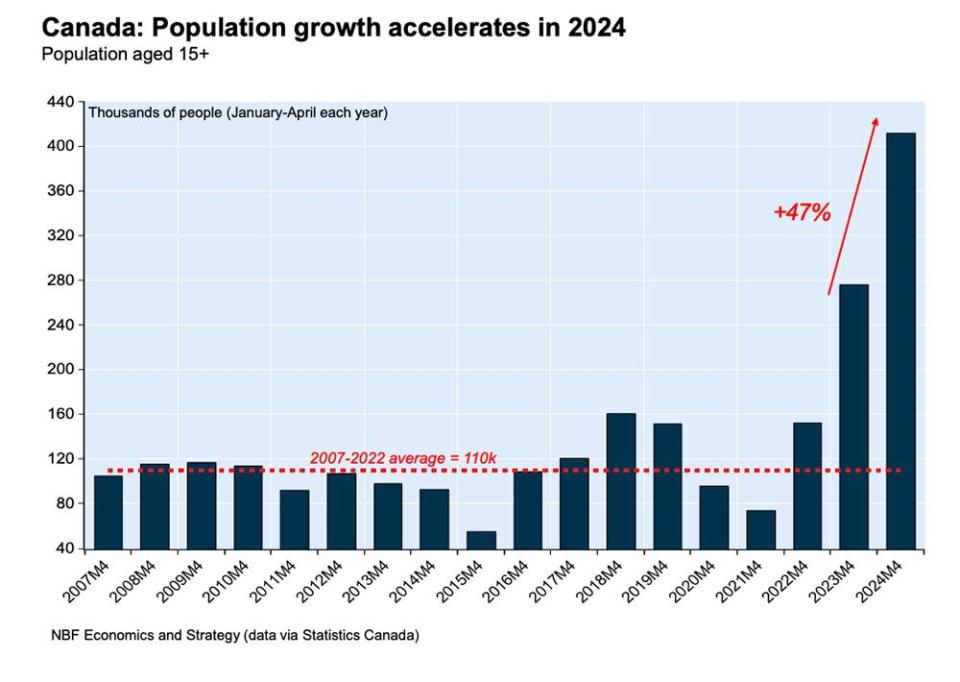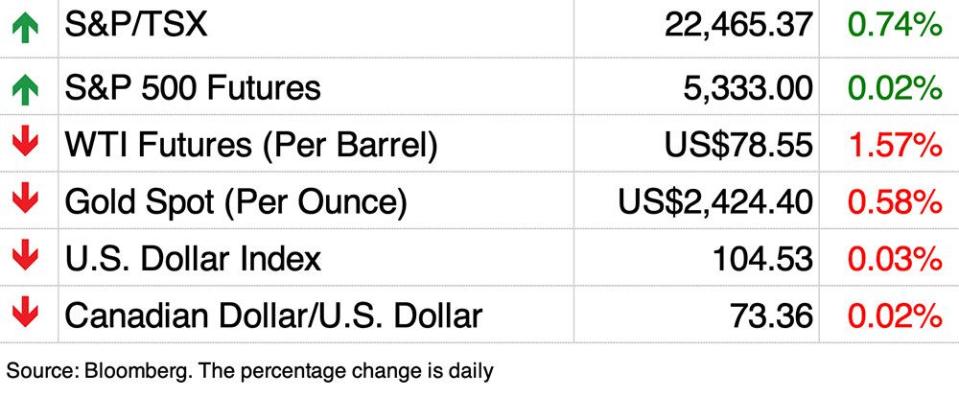Posthaste: Why Canada is better able to handle the costs of an aging population than other countries


The costs of an aging population are “massive,” but Canada is in better shape to handle these challenges than other countries, says a new report from Royal Bank of Canada.
Like many advanced economies, Canada’s population is getting older as baby boomers move into retirement.
When a rising share of the population stops working but continues to consume it creates an imbalance between demand and the amount of goods and services an economy can produce, writes RBC economist Carrie Freestone.
This exacerbates labour shortages and inflation and leads to higher interest rates. Governments face larger funding gaps as the demand for health care and social services increases and revenue from income tax drops.
“The reality is that an aging population does create substantial costs for an economy that need to be paid at some point,” said Freestone.
“The cost is massive.”
In the United States, which faces a shortfall in its social security program and “dramatically” higher health care costs, the value of future unfunded liability is almost US$80 trillion or US$236,000 per person, she said.
That is nearly three times larger than the current U.S. government debt of US$26 trillion and almost three times the size of the economy.
By comparison, Canada’s unfunded liability of $70,000 per person for health care and social assistance is a fraction of this, according to a 2018 estimate by the C.D. Howe Institute.
Canada is better prepared for two reasons, said Freestone.
First the Canada Pension Plan is fully funded, thanks to the establishment of the Canada Pension Plan Investment Board in 1997.
Canada’s population hit a record high of 40.77 million in 2023. The 3.2 per cent increase from the year before was the highest growth in the country since 1957 and the highest in the G7.
Because new immigrants are on average younger than the existing population, this surge of newcomers pushed the median age in Canada down to 40.6 years in 2022 and 2023, said Freestone.
But it has not been without controversy. The extra strain on housing and services prompted the government this year to impose caps on the number of international students and non-permanent residents that can come into the country.
The caps mean that Canada’s population will be 2.5 per cent lower in 2027 than it would have been without them, but even so the country’s population will continue to grow, said Freestone.
Canada’s migration rate is nearly double that of the United States.
“In the coming years, Canada can continue to count on immigration to partially offset the effects of an aging population, including a larger funding gap as the labour force naturally shrinks,” said Freestone.
“Countries that have not been proactively targeting immigration to address these challenges will bear the consequences in the decades ahead.”
Sign up here to get Posthaste delivered straight to your inbox.

Ottawa may have decided to pull up the reins on immigration, but population growth was still running hot in April. Today’s chart from National Bank of Canada economist Stéfane Marion shows that Canada’s working-age population (people 15 to 65) rose by more than 100,000 last month, bringing the four-month total for 2014 to 410,000. That’s 47 per cent more growth than in the first four months of 2023.
Greater Toronto’s population gained 107,000, a 66 per cent increase from the same time period last year, and growth in Greater Montreal and Vancouver more than doubled the increase in 2023.
“With Ottawa having announced its intention to limit immigration from 2025, it would seem that many people have decided to come to Canada earlier,” said Marion.
The influx that points to another record year of population growth could be a further blow to housing affordability, he said.
Statistics Canada releases its consumer price index for April today, a reading that will be closely watched by the Bank of Canada ahead of its interest rate decision on June 5.
Earnings: Lowe’s Cos Inc, AutoZone Inc

Would-be homebuyers are in limbo and only the Bank of Canada can free them
U.S. tariffs on the EV supply chain pose policy dilemma for Canada
FP Answers: Should I pay myself dividends from my company to avoid CPP premiums?
Paying yourself with either a salary or dividends is a question many entrepreneurs and professionals have since the latter avoids having to pay Canada Pension Plan premiums. Certified financial planner Andrew Dobson says the first question you should ask yourself is whether you should incorporate in the first place since that comes with additional fees. Find out more.
Canada's standard of living on track for worst decline in 40 years
Bank of Canada should watch this 'hurdle' to rate cuts like a hawk
Are you worried about having enough for retirement? Do you need to adjust your portfolio? Are you wondering how to make ends meet? Drop us a line at aholloway@postmedia.com with your contact info and the general gist of your problem and we’ll try to find some experts to help you out while writing a Family Finance story about it (we’ll keep your name out of it, of course). If you have a simpler question, the crack team at FP Answers led by Julie Cazzin or one of our columnists can give it a shot.
McLister on Mortgages
Want to learn more about mortgages? Mortgage strategist Robert McLister’s Financial Post column can help navigate the complex sector, from the latest trends to financing opportunities you won’t want to miss. Read them here
Today’s Posthaste was written by Pamela Heaven with additional reporting from Financial Post staff, The Canadian Press and Bloomberg.
Have a story idea, pitch, embargoed report, or a suggestion for this newsletter? Email us at posthaste@postmedia.com.
Bookmark our website and support our journalism: Don’t miss the business news you need to know — add financialpost.com to your bookmarks and sign up for our newsletters here.

 Yahoo Finance
Yahoo Finance 




